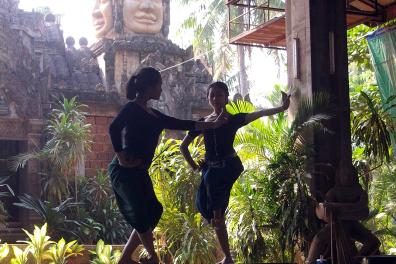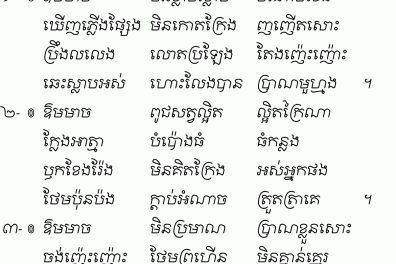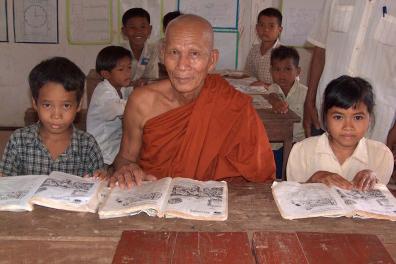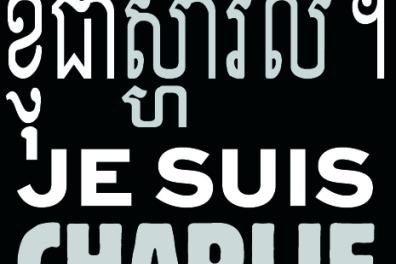Khmer (Cambodian)

Training courses
Masters I and II LLCER in Paris, Asia & Pacific pathway
Master I LLCER relocated to Phnom Penh, Asia & Pacific pathway, French-speaking curriculum for Cambodian students and students from other Southeast Asian countries taking part in the program
Brochure Tempo Khmer 2023-2024 (1.87 MB, .pdf)
Brochure diplôme d'établissement (DE) Khmer 2023-2024 (2.84 MB, .pdf)
Brochure diplôme de langue et passeport Khmer 2023-2024 (2.57 MB, .pdf)
Partnerships and mobility
- Inalco has scientific and educational cooperation agreements with the Université royale des Beaux-Arts (សាកលវិទ្យាល័យភូមិន្ទវិចិត្រសិល្បៈ) (URBA) and with the Royal University of Phnom Penh (សាកលវិទ្យាល័យភូមិន្ទភ្នំពេញ) (URPP).
- As part of the Manusastra project (គម្រោងមនុស្សសាស្ត្រ) and in partnership with the Royal University of Fine Arts, it is also possible for students in Inalco's Cambodian section to travel to the Cambodian capital, at the Université des Moussons, at the end of their second year of undergraduate studies, during the summer vacations, to attend courses in the humanities given to Cambodian students from URBA's Faculty of Archaeology, and also to Laotian students from the University of Laos (partnerships are also being set up with Vietnam and Thailand). These courses in French (with explanations and tutoring in Khmer for the Cambodian public) offer multi-disciplinary theoretical and methodological instruction in the humanities. They can be included in INALCO's course offerings as free UEs, or be the subject of equivalence with certain Inalco civilization courses.
- On the other hand, the Centre d'Études khmères (មជ្ឈមណ្ឌលខេមរសិក្សា, Center for Khmer Studies - CKS), based in Siem Reap and Phnom Penh, offers, in partnership with Inalco, junior summer scholarships (for French students under 25) and research scholarships for doctoral and post-doctoral students in Khmer studies (French researchers as well as European Union citizens integrated into the French university system).
Erasmus
In Europe, modern Khmer courses were previously offered at the School of Oriental and African Studies (SOAS) in London as well as at the University of Cologne. There was also an irregular offer of Khmer courses at the Humboldt University of Berlin, as well as an initiation at the L'Orientale University of Naples. Inalco is currently the only higher education institution offering Khmer courses at European level.
Associations
- Association d'échanges et de formation pour les études khmères : AEFEK ;
- Association des étudiants de la section de cambodgien de l'Inalco (AESCI) : e-mail contact AESCI ;
- Association Péninsule : Interdisciplinary Studies on Peninsular Southeast Asia.


